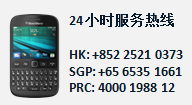Problems with DRI pellet cargoes in the Caribbean
A number of problems involving the loading of direct reduced iron pellets at Point Lisas in Trinidad have recently been reported by P&I Club correspondent Steers / Cariconsult.
DRI pellets are listed in the IMO Code of Safe Practice for the Carriage of Solid Cargoes in Bulk, which stipulates that this cargo requires inerting and temperature monitoring throughout loading, as well as further monitoring of oxygen, hydrogen and temperature levels until discharge.
Steers / Cariconsult says that problems involve excessive heating of cargo, contamination of ships' decks and coatings with corrosive dust, shoreside fires during loading, and loading of burning DRI. There has also been an incident resulting in the death of a ship's second officer, potentially arising from improper management of inerting systems.
They add that several cases "appear to indicate physical shortcomings in shore facilities, chain-of-command failure, or inadequate application of safe practices in relation to the loading and handling of DRI. The role of the Competent Authority is likely to come under scrutiny.
"It is recommended that particular caution be exercised when loading DRI pellets in Trinidad, and masters should be diligent to ensure that all recommendations of the IMO Code are properly carried out, and any deficiencies reported to shipowners so that proper steps can be taken prior to vessels sailing.
"Vessels affected by DRI dust - whether loading the cargo themselves or performing operations at adjacent facilities - should protect radar and other sensitive equipment, record and protest dust contamination, and obtain full advice on requirements for cleaning affected surfaces."
For further information,
contact Rupert Steer of Steers/
Cariconsult International Limited
on: Tel +1 246 423 6412 / Fax: +1
246 423 0985, or email:
rupert.cconsult@caribsurf.com
Source : the London P&I club
February 2004
back





